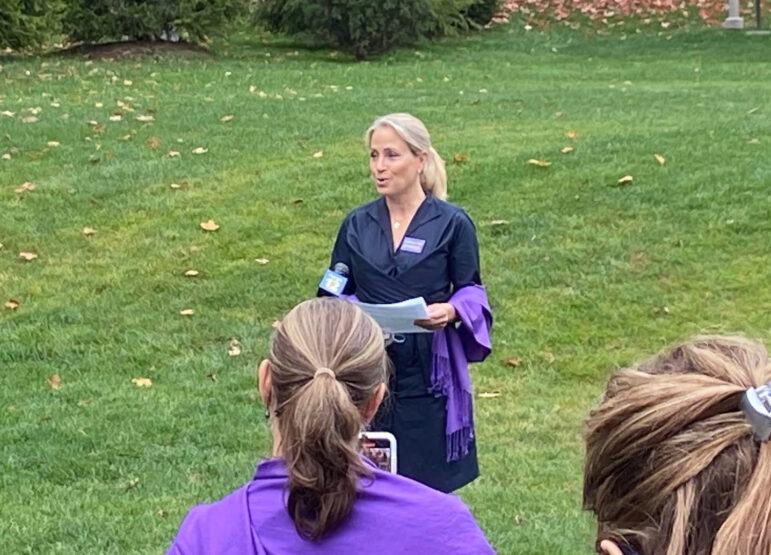On Thursday morning, a press conference at the Greenwich Historical Society’s Strickland Road campus focused on “Jennifer’s Law” and Connecticut custody reform legislation to keep domestic violence victims and children safe in Family Court.
“Jennifer’s Law,” SB-442, is named in honor of Jennifer Dulos, whose disappearance and suspected murder captured the hearts of residents from Fairfield County and beyond.
Her friend Carrie Luft urged the Connecticut state legislature to pass the bill.
“Jennifer Farber Dulos would never have wanted to be in the public eye or for her tragedy to be in any way elevated above that of others,” Luft said. “But she would have wanted to do everything in her power to help others in abusive situations to live free from fear.”
State Senator Alex Kasser from the 36th district representing Greenwich and parts of Stamford and New Canaan, proposed “Jennifer’s Law” last winter, but a hearing on the proposed legislation was delayed because of the pandemic. Kasser committed to bringing it forward again during the press conference.
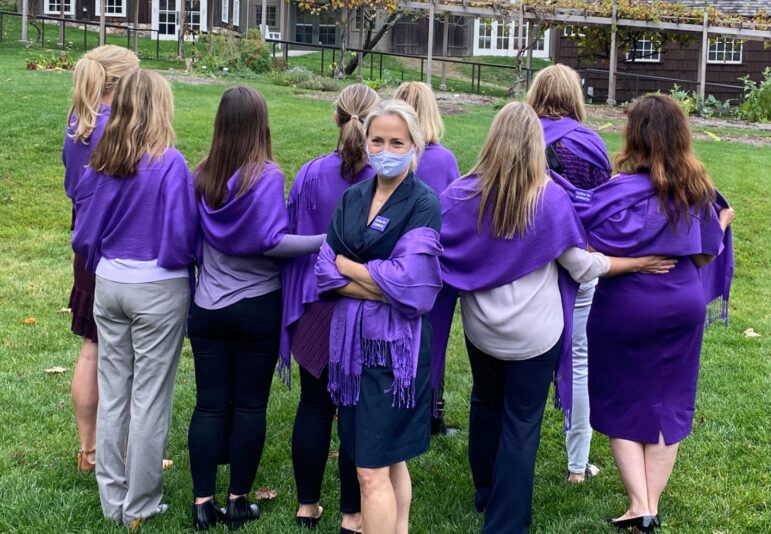
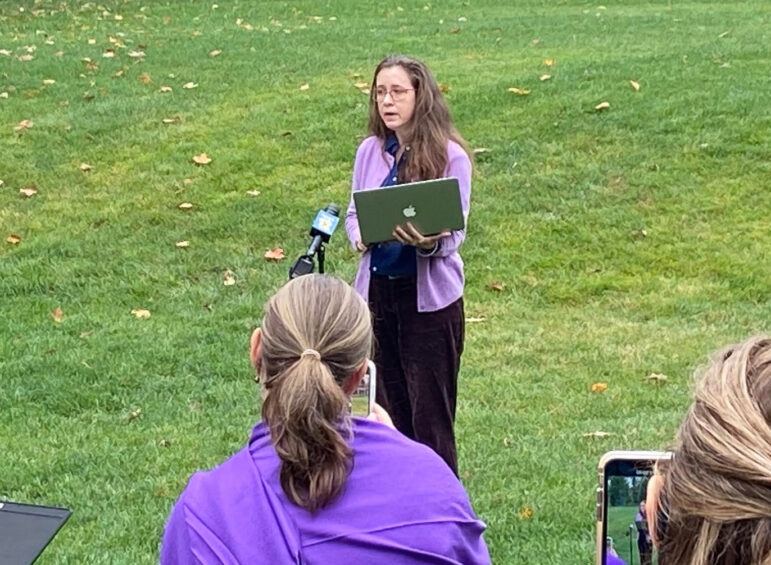
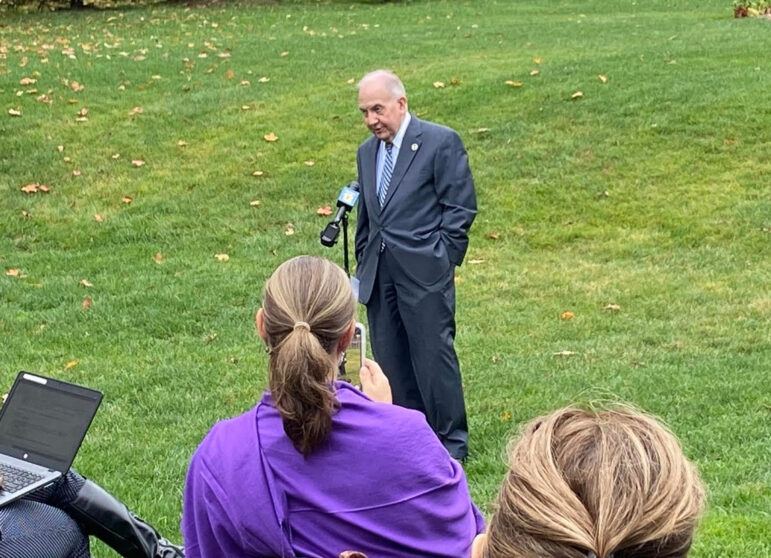
“Coercive control can be psychological – isolation, intimidation and
gaslighting,” Kasser said. “It can be economic – stealing money or withholding resources such as money, car or health insurance. It can be legal retribution – dragging us into court when reasonable people could resolve the issues. It can be sexual – coerced sex or other forms of sexual humiliation. Or it can be the threat of having something taken, including your own children.”
“Ten years ago I told my husband I was gay,” she said, adding that her husband at the time said if she divorced him he would take full custody their children.
“The year was 2010, before gay rights were established,” she continued. “His words had the intended effect. I felt powerless and terrified of losing my children. Never ask a woman “why did you stay?” We do not choose to stay. We think we have no choice. I stayed for 8 more years.”
Kasser said when victims do finally gather the strength to leave, and pursue their right to freedom, that’s when danger increases.
“When a woman asserts her independence the old methods of coercive control no longer work, so an abuser escalates,” she said. “Sometimes to physical violence. That is how we lost Jennifer Dulos and other women who knew they were in danger when they dared to leave.”
Kasser said domestic violence has increased as much as 50% during the pandemic.
She said shining a light on solutions included a concept she first introduced in the legislature in February.
She said Jennifer’s Law honored Jennifer Dulos, Jennifer Magnano, Shengyl Rashim, Tiana Notice, Ayden Moreno and thousands of other victims of domestic violence who lived in Connecticut.
“This legislation corrects a loophole in the current law by including coercive control in the legal definition of DV,” she said. “It allows family court judges to recognize and protect a victim, even if she has not yet been physically assaulted.”
Kasser quoted Judge Albis, Chief Administrative Judge of Family Court in Connecticut, who said the current “statute falls far short of giving the court the authority to enter an order of protection based on nuanced signs of power and control or psychologically coercive behavior. So, even if judges suspect emotional abuse, for these reasons, there is no provision in the statute to grant the order on that basis. By adopting language suggested by Sen. Kasser, the legislature will allow judges to elevate all levels of domestic violence to the scrutiny it deserves, particularly in cases involving child custody.”
Kasser said she was delighted and honored that Judge Albis supported the change she proposed.
Kasser said that last month she worked with Judge Albis to combine this concept with a second concept – making online applications for restraining orders a permanent option so victims no longer have to appear in court – and we proposed these in a bill for Special Session.
“The bill was not raised,” she said, adding, “But I will re-introduce it and keep fighting for it. I believe we can do better.”
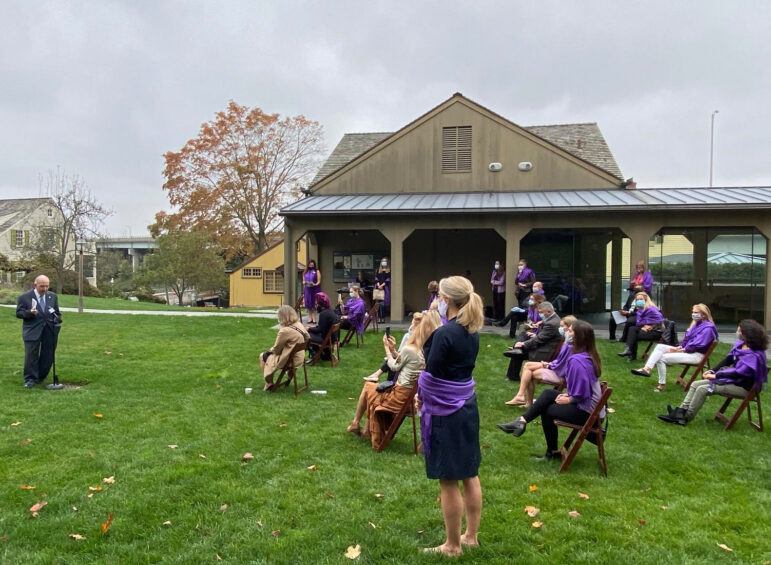
The most dangerous time for a domestic violence victim and her children is when she tries to leave the abuser.
Family courts are on the front lines of protecting DV victims and their children from this abuse, yet analysis by the Leadership Council shows that approximately 58,000 US children are ordered by courts into the custody of an abusive parent each year.
In addition, studies show that a parent who is allegedly abusing a child wins custody or unsupervised visitation 81 percent of the time, despite the fact that children’s disclosures of abuse are almost always credible.
This often happens despite a safe parent’s best efforts to protect their children from harm and warn the courts of impending risk to them and their children from the abusing parent. There is a national and international civil and human rights movement for children and their primary safe parent underway.
